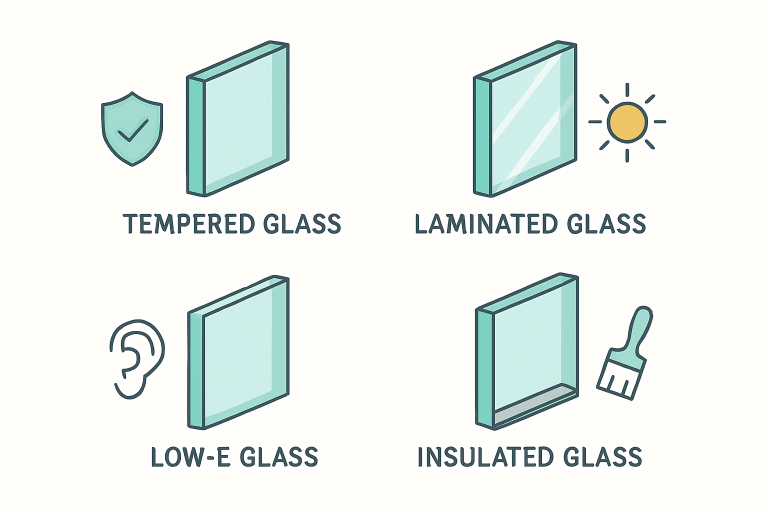Key Takeaways:
- Regular maintenance of commercial drain and sewer systems can prevent costly repairs and downtime.
- Understanding common problems and their solutions can enhance system longevity.
- Modern technologies offer innovative ways to manage and maintain drainage systems efficiently.
- Professional services play a crucial role in handling complex sewer issues.
Introduction to Commercial Drain and Sewer Maintenance
Maintaining commercial drain and sewer systems is crucial for ensuring the seamless operation of any commercial establishment. Regular upkeep, including commercial drain & sewer services Sterling VA, can prevent major issues, saving time and money in the long run. Neglecting these systems can result in costly repairs and extended downtime, disrupting business operations. Maintenance includes routine inspections, cleaning, and timely repairs, creating a holistic strategy for managing your establishment’s plumbing needs.
In many cases, businesses may overlook the importance of preventative maintenance, leading to significant disruptions when problems arise. Adopting regular maintenance routines is essential to identify and resolve issues before they escalate. Proactive maintenance ensures compliance with health and safety regulations and reinforces the longevity and efficiency of the entire plumbing infrastructure.
Common Commercial Drain and Sewer Problems
Understanding the common problems affecting these systems, from clogs to pipe corrosion, can help plan effective maintenance schedules. Clogs are often caused by debris, grease, or foreign objects. Corrosion, on the other hand, can be due to the age of the pipes, chemical exposure, or inadequate maintenance. These issues, if left unattended, can lead to more severe complications, such as pipe bursts or sewage backups.
One of the most pervasive issues is root intrusion. Trees and shrubs seek moisture; their roots can penetrate sewer lines, causing blockages and potentially severe damage over time. Additionally, fluctuating temperatures can cause pipes to expand and contract, leading to fractures. Regular inspection can help identify such vulnerabilities, and routine maintenance is necessary to prevent these problems from disrupting your business operations.
Preventive Measures for Drain and Sewer Systems
- Regular inspection and cleaning to remove debris
- Routine inspections and cleanings are essential preventive measures. These activities involve using specialized equipment to remove any build-up that might cause blockages. Inspections can also reveal early signs of wear and tear, allowing for timely interventions.
- Implementing a grease management program
- Grease management is essential for commercial kitchens. Implementing a grease management program involves installing grease traps and regularly cleaning them out. This prevents grease from entering the sewer system, which can cause significant blockages.
- Using eco-friendly drain cleaners
- Eco-friendly drain cleaners are less harsh on pipes and the environment. They use natural enzymes to break down waste without causing the corrosion associated with chemical cleaners. Regular use can help maintain clear pipes without damaging the sewer infrastructure.
Utilizing Modern Technology for Maintenance
Technological advancements can quickly identify issues within sewer pipes. These technologies offer a non-invasive way to diagnose and fix problems efficiently. In addition, software solutions can help schedule and track maintenance activities, ensuring that nothing falls through the cracks. CCTV inspection provides:
- Real-time video footage of the interior of the pipes.
- We are identifying issues like cracks.
- Blockages.
- Tree root intrusions with pinpoint accuracy.
Integrating IoT (Internet of Things) in plumbing systems is another significant advancement. Intelligent sensors can monitor the condition of sewer lines and send alerts when anomalies are detected, allowing for immediate action. Such proactive measures can substantially reduce the risk of unexpected failures, ensuring continuous operation and reducing potential losses.
DIY Tips Versus Professional Services
While DIY tips can be handy for minor issues, more complex problems often require professional intervention. Professional services use specialized tools and expertise that guarantee a more permanent solution. For instance, hydrojetting can remove stubborn clogs that simple plungers can’t handle. Professionals can also conduct thorough inspections to identify potential issues before they become significant problems.
DIY solutions are generally only effective for surface-level issues. For example, using a plunger or a hand-operated auger can resolve minor blockages but may not be suitable for more extensive problems. Professional plumbers have access to industrial-grade equipment and bring years of experience, making them better suited for diagnosing and addressing systemic issues.
Cost Benefits of Regular Maintenance
Maintaining your commercial drain and sewer system can significantly reduce repair costs. According to industry experts, preventive maintenance can save up to 40% on operational costs by minimizing downtime and extending the system lifespan. Regular maintenance helps detect issues early, reducing the likelihood of emergency repairs that can be both costly and disruptive. Preventative maintenance is more cost-effective and helps ensure continuous operations, which is crucial for any commercial establishment.
Aside from direct financial benefits, regular maintenance can help businesses comply with regulatory requirements. Many commercial establishments are subject to health and safety inspections, and maintaining a well-functioning sewer system can help avoid fines and penalties. Furthermore, a reliably maintained drainage system improves overall workplace hygiene, contributing to a healthier and more productive work environment.
When to Call in the Experts
Recognizing when a problem is beyond a DIY fix is crucial. Persistent issues, such as recurring clogs or strong odors, often indicate deeper problems that require professional attention. Additionally, if you notice slow drains across multiple fixtures, it could indicate a blockage in the main sewer line, necessitating professional intervention. Attempting to fix such issues on your own may lead to temporary solutions that do not address the root cause, eventually worsening the problem.
Enlisting professional services can provide a comprehensive assessment of your plumbing system. These experts utilize advanced diagnostic tools to uncover the underlying issue accurately. By leveraging their expertise, businesses can ensure that their drain and sewer systems are maintained effectively and efficiently, thereby avoiding prolonged disruptions and costly repairs in the future.
Conclusion
Regular and proactive maintenance of commercial drain and sewer systems can lead to significant cost savings and operational efficiency. Utilize modern technology and professional services for best results. By taking these steps, businesses can ensure their drainage systems continue functioning smoothly, minimizing disruptions and maintaining a healthy environment. Investing in the upkeep of these essential systems proves to be a prudent decision, addressing not only immediate concerns but also preventing potential future issues that could impede business operations.




